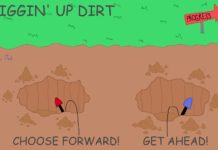Writing is in my blood. I firmly believe that my destiny lies in my writing.
When I was seven years old, I began to write stories. I took stacks of 8.5×11” printer paper, stapled them together and in my wiggly first-grade handwriting, I took what I knew from listening to storybooks in class and wrote.
I wrote a story of a star who lost her twinkle and journeyed to regain it, stories of children like myself experiencing conflict with their friends, only to resolve it in five pages and live happily ever after. My parents ignored the fact that my creative process was quite strenuous on our paper supplies. They told me to keep those stories safe because someday I would become a professional writer and reminisce on how far I have come.
Thirteen years later, writing has remained a part of my identity. It has always been my dream to write a novel and publish it someday and I feel as though my life will not be complete until I do.
In school, I struggled with math and science. I hid in the corner during gym. If you ask me to speak publicly, I will trip over my words as though my speech is running a three-legged race. However, when handed pen and paper, I flourish — I’ve filled dozens of journals throughout my life and tried my hand at poetry and songwriting. I find essays thrilling (albeit stressful) and I love the suspense and mystery that rears its head in my short stories.
One of the most popular pieces of writing advice I have heard is to allow yourself to write freely for your first draft and edit afterward — never edit as you write. In university, I do not have time to follow the meticulous essay-writing process I learned in high school. Sometimes my first draft becomes my final draft and I have to edit as I go, making sure every word is precise and perfect on my first attempt so that I can hand it in by the deadline.
As writers, our work asks for solitude, focus and introspection. Explaining your ideas to another person can feel like a recipe for humiliation. When I have an idea for a story, I tend to keep it inside my head, pulling small chunks of inspiration from anywhere and everywhere over time. I fear that if I outline it on paper or tell someone about my idea, I will write the life out of my story before it is even completed, and it will no longer feel intriguing to me.
However, when writer’s block and perfectionist anxieties make me feel like I am cemented to the ground unable to move, let alone write, collaboration comes to my rescue. I am grateful to be surrounded by creative, thoughtful people. When I have an idea for a story, I am able to sit down with them to discuss my process and stipulations — their perspectives fill in the gaps. Their unique knowledge irons out the deep-set wrinkles in my writing and makes my writing process feel smooth once more.
Reading and writing have always been siblings. I flip through books written by my favourite authors — Harriet Alida Lye and Ivan Coyote, to name a couple — and ask why I am so drawn to their work. How do they construct sentences and paragraphs in a way that grabs my attention? How long did it take them to write their novels? What is their process like? It is beneficial to take inspiration from people who have made writing their career, and to remind myself that they are people, too.
Above all, the most helpful thing I do to bring my ideas to creation is to simply keep writing. University forces me to write, whether it’s a short discussion post or a ten-page essays and all writing practice is useful practice. So long as I am writing, I am learning. I am bringing myself a step closer to writing the story that I want to write in the way it deserves to be written.
I will keep writing and practicing, so that one day I can make my seven-year-old self proud.






























